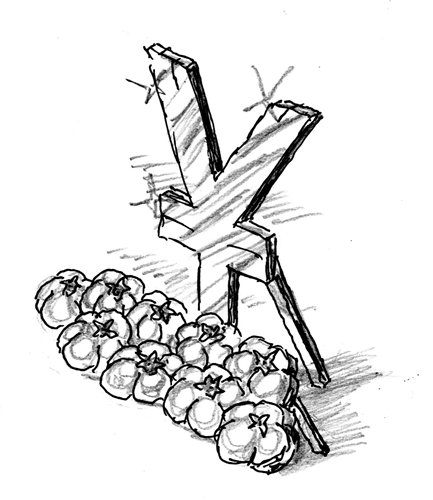
Illustrations: Peter C. Espina/GT
Although I'm an online shopping fanatic, I still feel annoyed when relatives and friends send a group discounting message from Pinduoduo, a Chinese online discounter, on WeChat, asking me to join the group buying of daily necessities at a lower price. The more people one can bring in, the cheaper a commodity can become. While you can't even buy a bowl of noodles with 10 yuan ($1.5) in China, you can find lots of options for cheaper baits on Pinduoduo.
I did group buy fruits with my colleagues at incredibly low prices over two years ago when Pinduoduo was launched. But I now prefer quality to price and have ditched the platform, like many people around me.
The controversial platform has developed to sell a wider range of products at incredibly low prices, which triggers extensive complaints about the quality of the products and after-sales service. Once I asked a relative whether the products she bought on Pinduoduo were good to use.
"It's not good, but still usable," she said.
The burgeoning Pinduoduo has lured about 300 million users over the past three years and got listed on the Nasdaq stock exchange on July 26. In a sense, the platform did find a consumer segment which has been ignored by other e-commerce platforms that increasingly target mid-range and high-end products.
Backed by social media giant Tencent, Pinduoduo precisely defines its consumers as people who don't usually use other online shopping platforms like Taobao or JD.com, and are extremely sensitive to prices rather than brands.
These people easily fall for Pinduoduo as they can conveniently buy cheap things via WeChat and don't have to learn to use other complicated platforms. For them, buying low-quality goods on Pinduoduo at much lower prices than market rates is an acceptable or even economical mode of living.
In this respect, Pinduoduo has even helped lower the living costs of a large number of people in China where the annual per capita disposable income in 2017 was 25,974 yuan, about 2,166 yuan per month, according to the National Bureau of Statistics.
But selling cheap goods isn't the same as counterfeiting. Pinduoduo going public has set off a heated debate and sparked fierce criticism on social media about the commercial model and ethics of the discounting platform. And authorities have stepped in to investigate. Apparently, the Chinese people have realized that consumer tolerance doesn't justify Pinduoduo's lax management of, or rather laissez-faire attitude toward knockoffs.
For instance, some netizens complained that televisions of South Korean electronics giant Samsung sold on Pinduoduo turn out to be a copycat brand that bears much resemblance to Samsung and can hardly be differentiated. And a bunch of other popular brands have protested against Pinduoduo over the knockoffs.
Obviously the evil is not the lower price, but the blatant selling of fake products and all kinds of cheating to confound consumers. Its huge consumer base is behind the current commercial success of Pinduoduo, if going public in New York can be counted as success, but such a business model will dent the company's reputation and eventually make it bite the dust.
Dada, a co-founder of Pinduoduo, argued on Tuesday that it's unfair to blame the startup for the counterfeiting problem that is still ubiquitous in China, and sought cooperation of its peers to deal with the issue. Unfortunately, China has seen the pressing need for intellectual property rights protection amid the trade war with the US. If the company doesn't immediately step up efforts to strictly monitor vendors on the platform and take necessary measures to rein in those dealing in spurious goods, it's quite uncertain how far the company will go.


